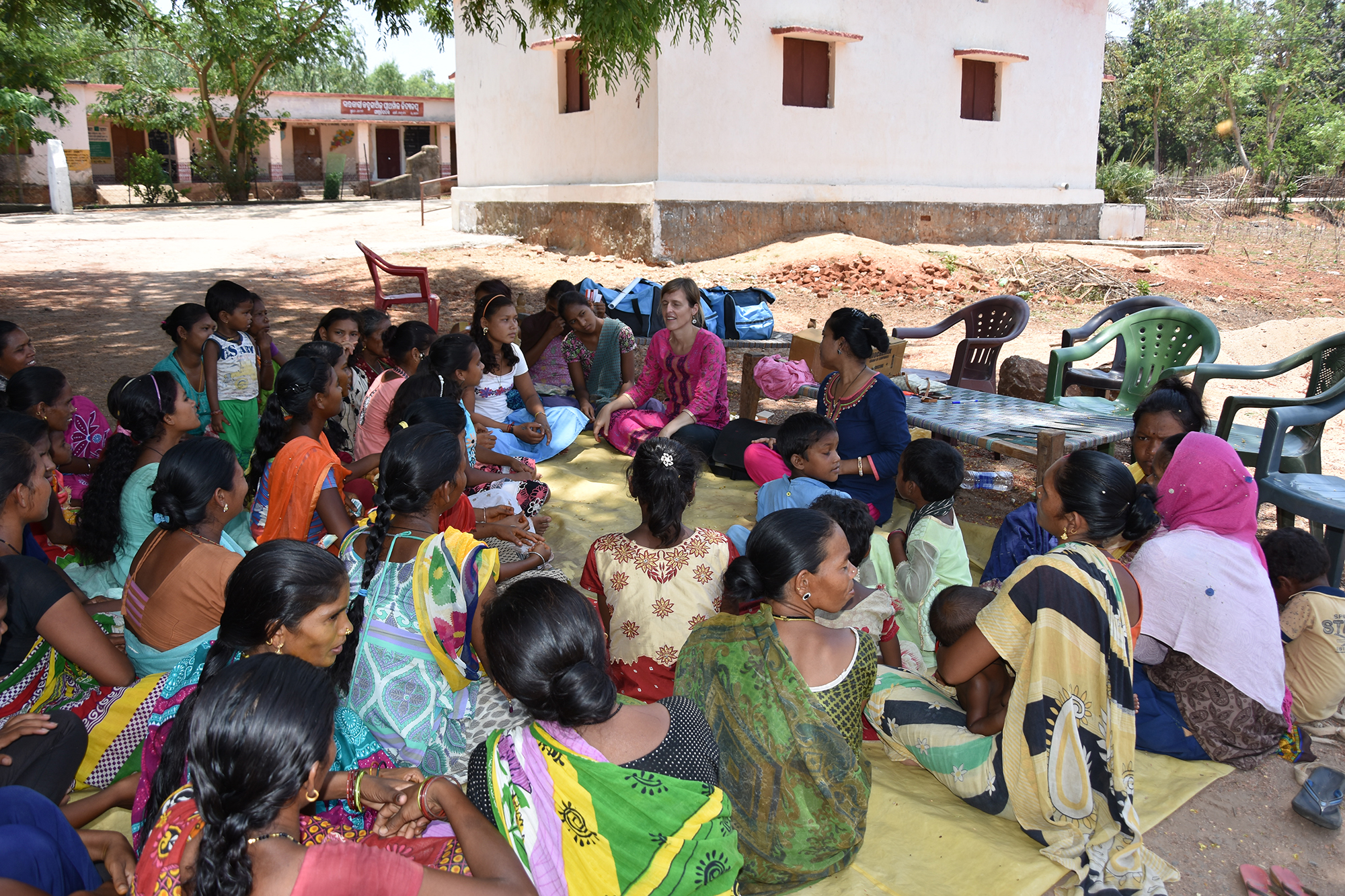

MENSTRUATION – A HEALTH RISK
INDIA & NEPAL
In many remote villages in India and Nepal, menstruation is a reason why many girls and women are shunned and discriminated against. Due to reasons of tradition, women are forbidden to enter the kitchen, eat with the family and sleep in the conjugal bed during their menstruation period. Moreover, they are not allowed to enter the house and are forced to sleep in menstruation huts. This dangerous tradition is called Chhaupadi. In those often dirty huts, women are exposed to several kinds of danger. In addition to a lack of hygiene, they struggle with the freezing cold or are raped or beaten. News about women falling serious-ly ill or even dying in such huts are frequent. The Chhaupadi tradition is forbidden in most parts of the countries, but is still practised in many regions – people do not dare to disregard the tradition because they are afraid of bringing bad luck to the family.
Another big problem is the general tabooing of the menstruation topic. The girls and women try to hide their menstruation out of shame, do not wash themselves properly during this time and do not tell anyone about irregularities in the cycle. Some women suffer from massive abdominal pain for years without anyone knowing. Visits at the gynaecologist‘s are foreign to them. Besides, women from poor families cannot afford the necessary menstrual pads. That is why they turn to unhealthy alternati-ves.
The Hope is life team has been confronted with this topic many times through the current projects and has decided to take action now.
The project
Hope is life approaches the diffictult topic of menstruation that goes hand in hand with harmful traditions and is also handled as a strict taboo. In order to do this, we had to develop a strategy not to overwhelm the wo-men and men with education and information.
The first step was to address menstruation in our project villages. In regu-lar sessions, we openly talk about the period and its consequences. Every six months, the women are examined by a female gynaecologist who also addresses hygiene consistently. Discomforts in the genital area and the abdomen are now examined and treated appropriately.
In order to approach the topic of missing menstrual hygiene products and further education, we have begun to produce washable cloth menstrual pads made of cotton. We involve women from our villages in this produc-tion so that they can make extra money for the family living.
It may sound a bit gross to us, but it can save lives in those regions. The pads are sold at a low price and can be used for two to three years. In addition to selling the product, we do educational work. We show the women how to use the pads correctly and in a hygienic way so that dise-ases during the menstruation period can be prevented and the well-being during these days can be increased. Also, we address the dangerous ritu-als and traditions during the period.
Project goals
1. Implement hygiene rules during the menstruation period
By informing about the consequences and diseases resulting from unhygi-enic circumstances during the period, we make it clear how essential hygi-ene is. Also, the women learn about hygiene rules and can feel safe during their days of menstruation.
2. Address discomforts and other problems during the period and treat the causes
During the sessions with the women, we openly talk about pain or dis-comfort in the abdomen and the genital areas. Like this, the topic is no taboo anymore and we can arrange medical treatment, if necessary.
3. Understand and prevent the dangerous consequences of some tradi-tions and rituals during the menstruation period
The topic of harmful traditions is probably the most difficult one. That is why we dedicate ourselves to this topic, seek interchange, show the so-metimes deadly consequences and look for alternatives in order to adapt the rituals to the respective circumstances and implement them so that the menstruation days do not become a danger to the women.
4. Offer hygienic alternative to unhealthy option
The production and sale of the pads leads us to the above-mentioned goals once more. While selling, the women can talk about the topic, edu-cate and share solution propositions. They get a cheap alternative to the usual pads and can abandon the unhygienic alternatives.
